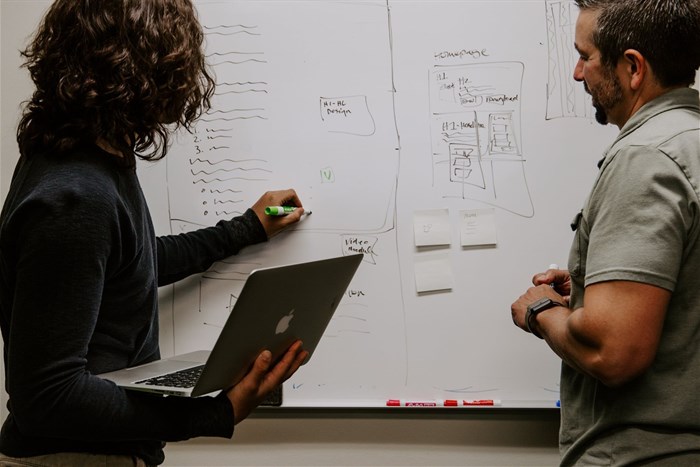
Capital and cash flow, or rather the lack thereof, rank among the top three concerns among South Africa’s entrepreneurs.
“Finding funding for businesses right now is becoming a critical issue. Research conducted by our Foundation shows that 49% of small business owners say their business is currently profitable but only just; while 21% say they are short most months,” says Fred Roed, CEO of Heavy Chef.
“A further 66% say it is very hard for them to access funding; only 9% say it is easy, while 22% rate their broader finance knowledge and skills as "poor"; 48% as "average",” he adds.
Panel members were two local specialists in raising capital, Hope Ditlhakanyane, head: venture sourcing of Founders Factory Africa and Keitumetse Lekaba, managing director of I Am An Entrepreneur.
“Finding funding for businesses right now is becoming a critical issue. Research conducted by our Foundation shows that 49% of small business owners say their business is currently profitable but only just; while 21% say they are short most months,” says Fred Roed, CEO of Heavy Chef.
“A further 66% say it is very hard for them to access funding; only 9% say it is easy, while 22% rate their broader finance knowledge and skills as "poor"; 48% as "average",” he adds.
For Lekaba, the issue is not so much a lack of available funding but rather businesses making themselves funding-ready, particularly in the case of start-up businesses.
“As the saying goes - you can’t build a fundable business plan - you have to build a solid business that is fundable. Your business model must be solid,” she says.
“These funding efforts include providing the basics such as a business plan, company registration documents, bank accounts, financial statements, tax clearance certificates as well as requisite industry certificates. In the case of food, for example, this would be a health and safety clearance certificate,” she adds.
Equity funding - typically venture capital which is seeded in start-up companies that have yet to sell shares to the public.
Debt funding - loans from banks and other financial institutions, which have to be paid off monthly at interest.
Grants - these are typically government agency enterprise and supplier development grants such as those provided by the Industrial Development Corporation (IDC), Small Enterprise Development Agency (SEDA), National Youth Development Agency (NYDA) and the National Empowerment Fund (NEF).
Ditlhakanyane says there are four questions emerging entrepreneurs need to answer in order to crystallise their value proposition and sharpen their ability to attract funding. These are:
Do you have a deep connection to the problem you're trying to solve? Will the unique insights you have allow you to build a differentiated solution? This may mean addressing a structural issue within a particular industry or solving a problem for a parallel industry.
Can your idea be executed at scale and do you have a strong data-backed hypothesis around how you will achieve growth?
How open are you as an entrepreneur to feedback? Will you bring in expertise if necessary? How coachable are you?
Bottom line: is your business solution unique, can it be commercialised and are there identifiable milestones that spell recognisable growth?
“Barriers to funding partly lie in financial literacy with many business owners battling to put down a solid business plan and balance sheet,” Ditlhakanyane says.
Many of the public sector funding agencies such as SEDA provide free literacy consulting to address this.
According to Roed, entrepreneurs are increasingly looking for a community to share their struggles as business owners, as well as opportunities to be mentored.